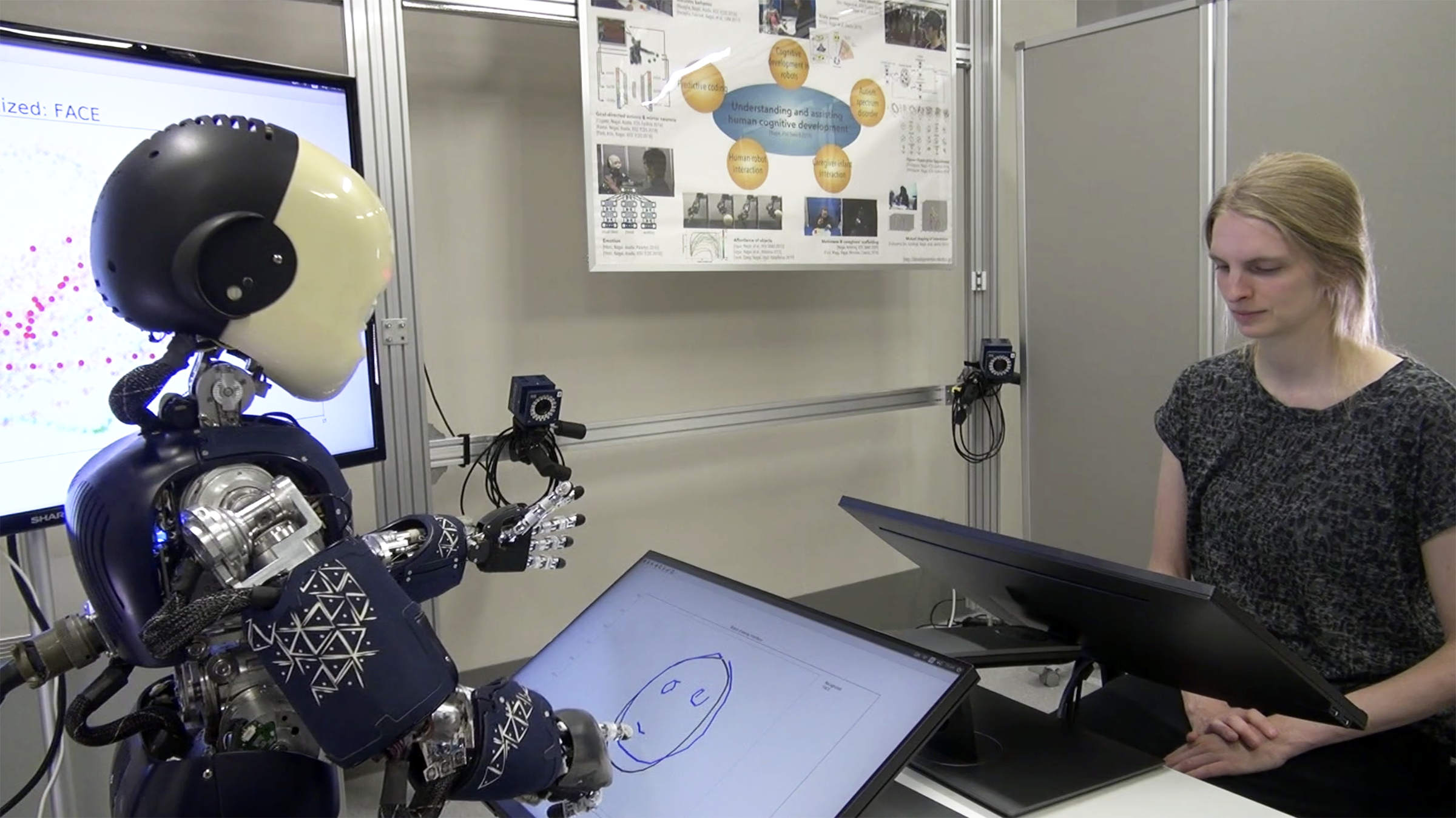
Developmental disorders such as autism spectrum disorder have been characterized by deficits in social interaction. Recent studies in cognitive neuroscience and Tojisha-kenkyu, however, suggest that atypical processing of sensorimotor signals might be their crucial difficulty and cause deficits in higher cognitive capabilities as a consequence. We aim at understanding the underlying mechanism of developmental disorders by means of computational approach based on predictive coding. Predictive coding is a well-known theory that has been suggested to be a core mechanism of the human brain. It is supposed that the brain tries to minimize the prediction error between incoming sensory signals from the environment and top-down prediction generated by the internal model, which is acquired through experiences.
We investigate whether and how recurrent neural networks based on predictive coding replicate atypical behaviors observed in developmental disorders, where modifications in the networks’ parameters are introduced in order to simulate their atypical brain functions. Furthermore, we closely analyze the internal representation of the networks in order to reveal underlying neural mechanisms of their atypical behaviors (Philippsen & Nagai, 2018).